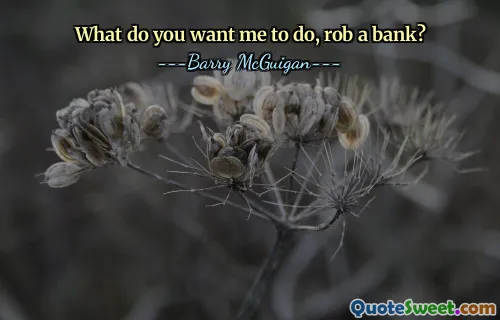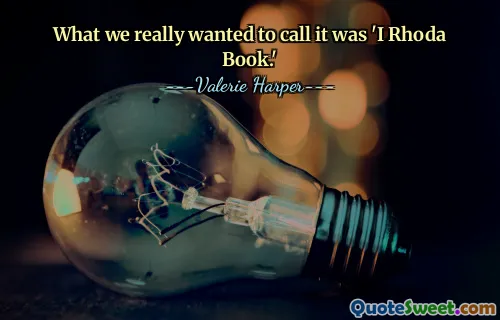Thought of blowing your brains out?William blinked, startled.No.That's good. Anything else is bound to be an improvement, isn't it?
In Diana Gabaldon's "Written in My Own Heart's Blood," a conversation unfolds that highlights the stark contrast between despair and the hope for improvement. One character, William, is taken aback when presented with an extreme thought about self-harm. The unexpected question suggests a level of desperation and reflects on mental health struggles, emphasizing the importance of finding a way to cope. The dialogue reveals a deeper understanding of the human condition, where contemplating such dark thoughts can be met with a glimmer of optimism. The response hints that simply avoiding such a drastic outcome can lead to better possibilities in life. This exchange invites readers to consider the value of seeking support and the potential for healing beyond moments of profound despair.
In Diana Gabaldon's "Written in My Own Heart's Blood," a conversation unfolds that highlights the stark contrast between despair and the hope for improvement. One character, William, is taken aback when presented with an extreme thought about self-harm. The unexpected question suggests a level of desperation and reflects on mental health struggles, emphasizing the importance of finding a way to cope.
The dialogue reveals a deeper understanding of the human condition, where contemplating such dark thoughts can be met with a glimmer of optimism. The response hints that simply avoiding such a drastic outcome can lead to better possibilities in life. This exchange invites readers to consider the value of seeking support and the potential for healing beyond moments of profound despair.





